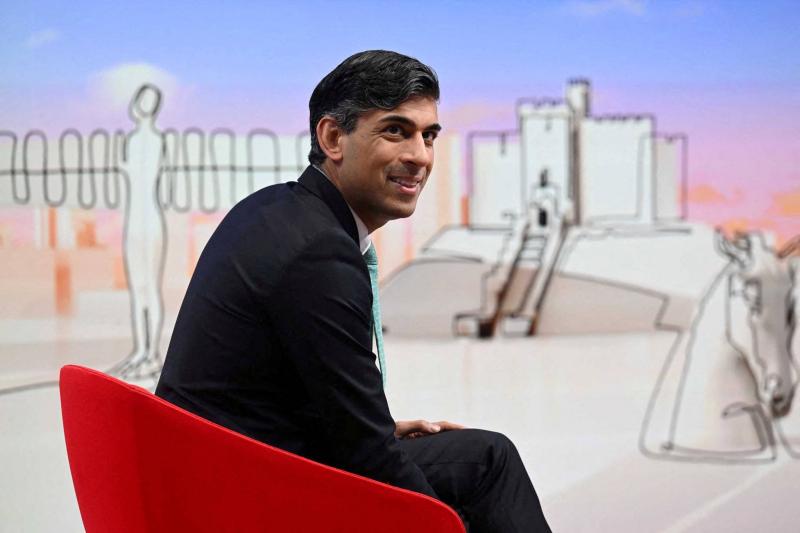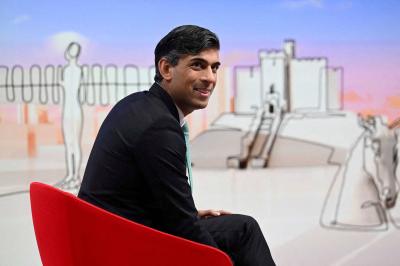British Prime Minister Rishi Sunak urged voters and his party on Sunday to "stick to the plan" for "long-term change" in elections he indicated are likely to take place in the second half of this year. After announcing last week the start of the election campaign, Sunak stated that his "working assumption" was that elections would be timed for the second half of the year. He provided a list of progress made since taking office in late 2022.
Given the significant lead of the opposition Labour Party in opinion polls, Sunak hopes to turn the tide by giving more time to his agenda aimed at reducing taxes, alleviating healthcare waiting lists, and controlling immigration numbers—issues he claims to have started addressing.
So far, Sunak has struggled to make headway on his key pledges and leads a deeply divided party, with some lawmakers threatening to depose him unless he cuts taxes further. Sunak has achieved one goal: halving the inflation rate by the end of 2023, a target economists say is not related to government policy.
On Sunday, Sunak expressed confidence in obtaining parliamentary approval for his heavily criticized plan to send asylum seekers to Rwanda and stated he wants to further reduce taxes by adjusting spending, particularly on welfare benefits, noting that the number of people unable to work is "concerning."
The opposition Labour Party accused Sunak of wanting to "cling" to his position, with party leader Keir Starmer telling Sky News that he wants elections "as soon as possible," but fears Sunak is merely seeking to stay in power for two more years. Starmer said, "I can’t help but feel that all he really wants to do is spend two years in the prime minister's office, which means he is putting his personal interests above the interests of the country."




